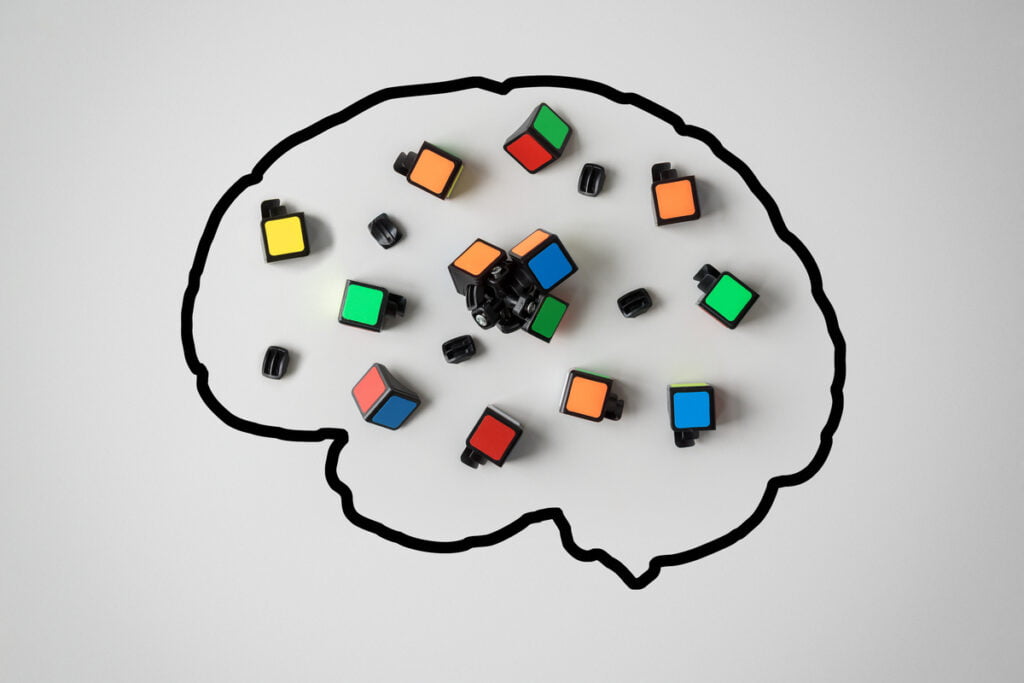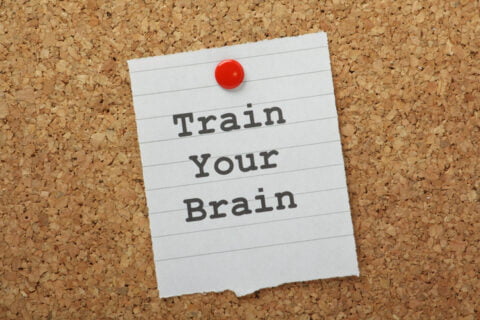Are you having trouble recalling a word, finding your keys, or remembering someone’s name? Don’t worry, you are not alone. As we age, our cognitive capacities can deteriorate, affecting our daily lives and overall well-being. But there’s good news: novel therapies are changing the way we think about cognitive decline, providing hope and practical solutions for brighter minds and healthier life.
Understanding Cognitive Decline
Cognitive decline is the consistent weakening of cognitive capabilities like memory, attention, and problem-solving skills. It is a normal aspect of ageing, but for some people, it can lead to more serious illnesses such as dementia or Alzheimer’s disease. Recognising the stages of cognitive decline is critical for timely intervention and improved outcomes.
Definition and Stages
Cognitive decline refers to a range of changes in cognitive function, from mild cognitive impairment (MCI) to severe dementia. MCI causes noticeable but subtle alterations in memory and thinking skills that do not significantly interfere with daily life. However, if left untreated, MCI can lead to dementia.
Symptoms and Risk Factors
Cognitive decline symptoms might vary, but common ones include forgetfulness, difficulty concentrating, and difficulties with problem solving. While ageing is the key risk factor, genetics, lifestyle, and underlying health issues can all contribute to accelerated cognitive decline.
Impact on Daily Living
The consequences of cognitive deterioration go beyond memory lapses. They can affect an individual’s capacity to complete daily chores independently, resulting in frustration and a lower quality of life. Cognitive decline can drastically disturb typical activities, ranging from financial management to social engagement.

The Role of Neuroscience in Cognitive Health
Neuroscience, the study of the nervous system and the brain, is at the forefront of understanding cognitive decline and developing effective interventions. By leveraging advanced technologies and research methodologies, neuroscientists are unraveling the mysteries of the brain and paving the way for innovative therapies.
Neuroscience-Backed Assessments
Early detection is a crucial factor in combating cognitive deterioration. Neuroscience-based examinations, such as brain imaging and cognitive testing, can provide vital information about brain health and uncover potential risk factors for neurodegenerative disorders. Early intervention based on these assessments has a major impact on treatment outcomes.
Importance of Scientific Research
Scientific research is the foundation of innovative therapy for cognitive decline. Researchers can validate intervention effectiveness and improve treatment techniques by conducting rigorous investigations and clinical trials. This evidence-based approach assures that medicines are safe, dependable, and tailored to specific patient needs.
Early Detection of Neurodegenerative Risks
Neuroscience is essential in detecting early warning signals of neurodegenerative disorders such as Alzheimer’s. Biomarkers and neurological pathways linked with these disorders can be studied to detect modest changes in brain structure and function long before symptoms appear. This early detection allows for timely therapies that delay or prevent disease progression.
Innovative Therapies for Cognitive Decline
Innovative therapies for cognitive decline are revolutionizing how we approach brain health. By leveraging the latest advancements in neuroscience, these treatments offer personalized solutions that cater to the unique cognitive profiles of individuals. This section provides an overview of the latest therapies and treatments, highlighting the benefits of personalized brain health solutions.
Overview of the Latest Therapies and Treatments
The landscape of cognitive decline treatment has evolved significantly, with an emphasis on early detection and personalised therapies. Cutting-edge therapies are tailored to people’ specific needs, improving cognitive resilience and reducing the process of decline. These therapies include calibrated brain games, neuro-counsellor consultations, and lifestyle changes, all of which provide specific benefits to cognitive health.
Benefits of Personalized Brain Health Solutions
Personalised brain health solutions are customised to each individual, offering targeted interventions that address specific cognitive deficits while leveraging strengths. This personalised approach ensures that therapies are not only effective but also long-lasting, as they are tailored to the individual’s lifestyle.
Benefits of these solutions include:
- Improved cognitive function and resilience
- Enhanced quality of life and independence
- Early intervention and prevention of severe cognitive decline
- Holistic support addressing both cognitive and lifestyle factors
Calibrated Brain Games
Calibrated brain games are scientifically developed to focus on specific cognitive areas including memory, attention, and problem-solving. Unlike generic brain games, these are tailored to the individual’s cognitive evaluation findings, resulting in a tough but manageable brain workout. The systematic method encourages neuroplasticity, which strengthens brain connections and improves cognitive function over time.
Benefits include:
- Targeted enhancement of specific cognitive skills
- Engagement and motivation through personalized challenges
- Measurable improvements in cognitive performance
Neuro-Counsellor Consultations
Neuro-counselors specialise in assisting people with cognitive problems by providing personalised assistance and methods. These consultations take a holistic approach to cognitive wellness, treating both the symptoms and the underlying causes of cognitive decline. Neuro-counsellors assist clients in identifying their cognitive strengths and weaknesses, developing coping methods, and implementing lifestyle changes.
Benefits include:
- Personalized support and guidance from experienced professionals
- Development of effective coping and cognitive enhancement strategies
- Ongoing monitoring and adjustment of treatment plans
Lifestyle Modifications and Recommendations
Lifestyle modifications play a crucial role in promoting cognitive health. Simple changes such as regular physical activity, a balanced diet, adequate sleep, and social engagement can significantly impact brain function and overall well-being. Personalized recommendations based on individual assessments help optimize these lifestyle factors to enhance cognitive resilience.
Benefits include:
- Improved overall health and well-being
- Reduced risk of cognitive decline through proactive lifestyle management
- Enhanced effectiveness of other cognitive therapies
Individuals that use these modern therapies can obtain a comprehensive approach to maintaining and increasing cognitive health. Ivory’s services combine these parts to give a comprehensive, personalised strategy suited to each individual’s specific needs, resulting in the greatest potential outcomes for brain health and cognitive performance.
Ivory’s Approach to Enhancing Brain Health
While getting adequate sleep is crucial, Ivory offers a more comprehensive approach to boosting your brain health. We combine cutting-edge neuroscience and tailored instruction to help you attain your maximum cognitive potential.
Understanding Your Brain:
Our journey starts with a neuroscience-based assessment. This first phase employs a series of small tests to determine your individual cognitive strengths and shortcomings. By identifying particular areas for improvement, we may create a tailored plan to enhance your brain’s possibilities.
Calibrated Brain Games:
Brain games can be a fun and effective technique for strengthening cognitive function. However, not all games are made equal. Ivory includes calibrated brain games that target particular weak cognitive areas identified during your assessment. These personalised games give your brain a challenging yet achievable workout, resulting in measurable improvements as you play them.
Expert Neuro-Counsellor Consultations:
Our team of experienced neuro-counsellors works alongside you throughout your brain health journey. They provide guidance, support, and personalised strategies to help you integrate healthy habits and maximise the benefits of the program.
Personalised Recommendations for a Holistic Approach:
Ivory goes beyond just games and exercises. Based on your assessment results and lifestyle, we offer personalised recommendations. This might include sleep hygiene tips, stress management techniques, or even dietary suggestions that can all contribute to a healthier brain. By addressing modifiable risk factors, we can create a holistic plan to optimise your cognitive well-being.
Recap
- Cognitive decline affects memory, attention, and problem-solving abilities.
- Neuroscience advancements have led to innovative therapies for cognitive decline.
- Early detection through neuroscience-backed assessments is crucial for effective intervention.
- Calibrated brain games target specific cognitive areas for measurable improvements.
- Neuro-counselor consultations provide personalized support and strategies.
- Lifestyle modifications, including exercise, diet, and sleep, enhance cognitive health.

Takeaway!
To summarise, cognitive decline is a serious concern as we age, affecting memory, attention, and problem-solving ability. However, advances in neuroscience have paved the door for novel medications that provide both hope and real remedies. Early identification using neuroscience-backed exams, personalised calibrated brain games, expert neuro-counselor consultations, and lifestyle changes are all critical components in treating cognitive decline.
Are you ready to begin your brain health journey? Reach out to Ivory today to find out more about our customised brain health programmes and consultations. Take charge of your cognitive well-being and feel the benefits of a sharper, healthier brain.
Frequently Asked Questions
A: Early signs can be subtle and include increased forgetfulness, difficulty finding words, or struggling with familiar tasks. Often, family and friends notice these changes first.
A: There’s no guaranteed way to prevent it, but healthy lifestyle choices can help. This includes staying mentally and physically active, eating a balanced diet, managing stress, and getting enough sleep.
A: There isn’t a cure, but therapies can help manage symptoms and improve function. These may include cognitive rehabilitation, medication, and psychotherapy.
A: Some brain games may provide short-term benefits, but research on long-term effects is mixed. Engaging in a variety of mentally stimulating activities is likely more beneficial than relying solely on brain games.
A: Neuroscience research helps develop brain imaging techniques and biomarkers that can aid in earlier detection of diseases like Alzheimer’s.
A: A healthy lifestyle that includes regular exercise, a balanced diet, quality sleep, and stress management is crucial for brain health. Additionally, staying mentally stimulated by learning new things and socializing can be beneficial.
A: Neuro-counselors provide support and education for individuals with cognitive decline and their families. They can help with coping strategies, emotional well-being, and daily living skills.
A: Personalized approaches that consider individual needs and risk factors are gaining traction. However, more research is needed to determine their long-term effectiveness.
A: Some causes of cognitive decline may be reversible, but damage from neurodegenerative diseases is not. Early diagnosis and intervention can help slow progression and improve quality of life.
A: Age, genetics, and certain health conditions like high blood pressure and diabetes increase the risk of neurodegenerative diseases.




